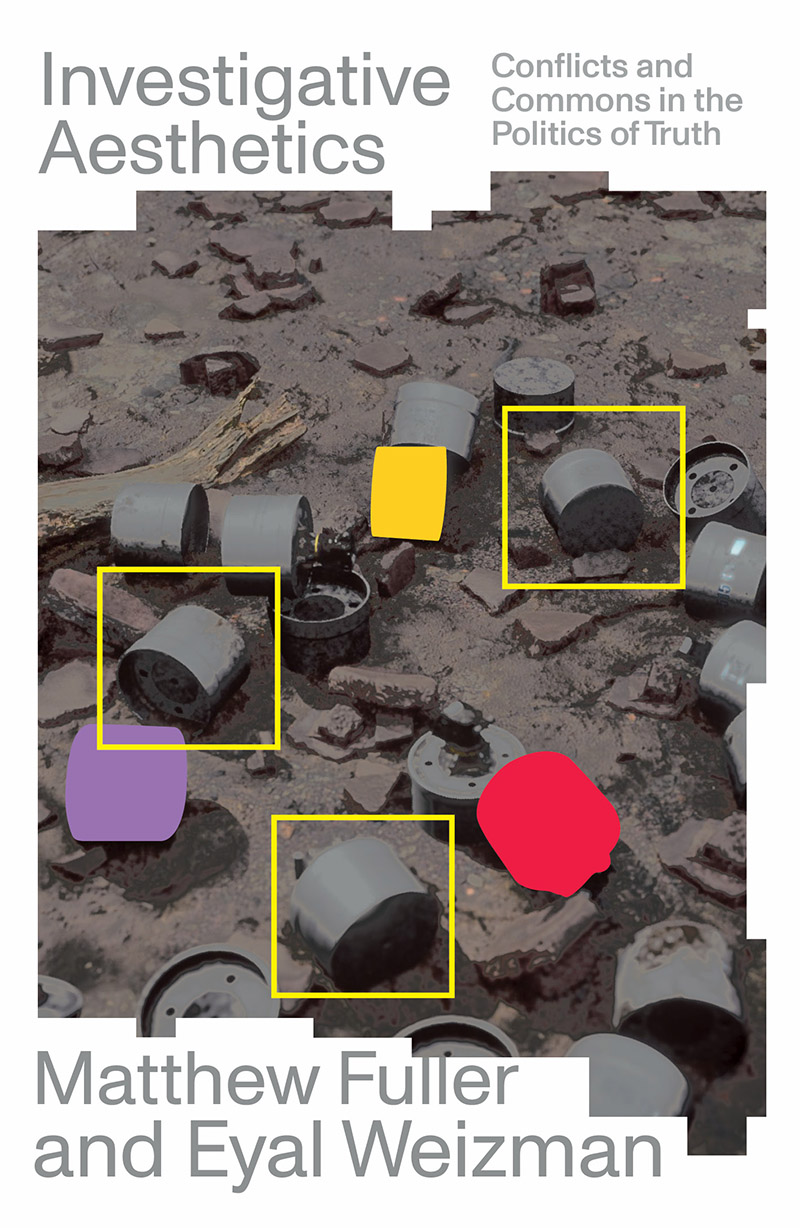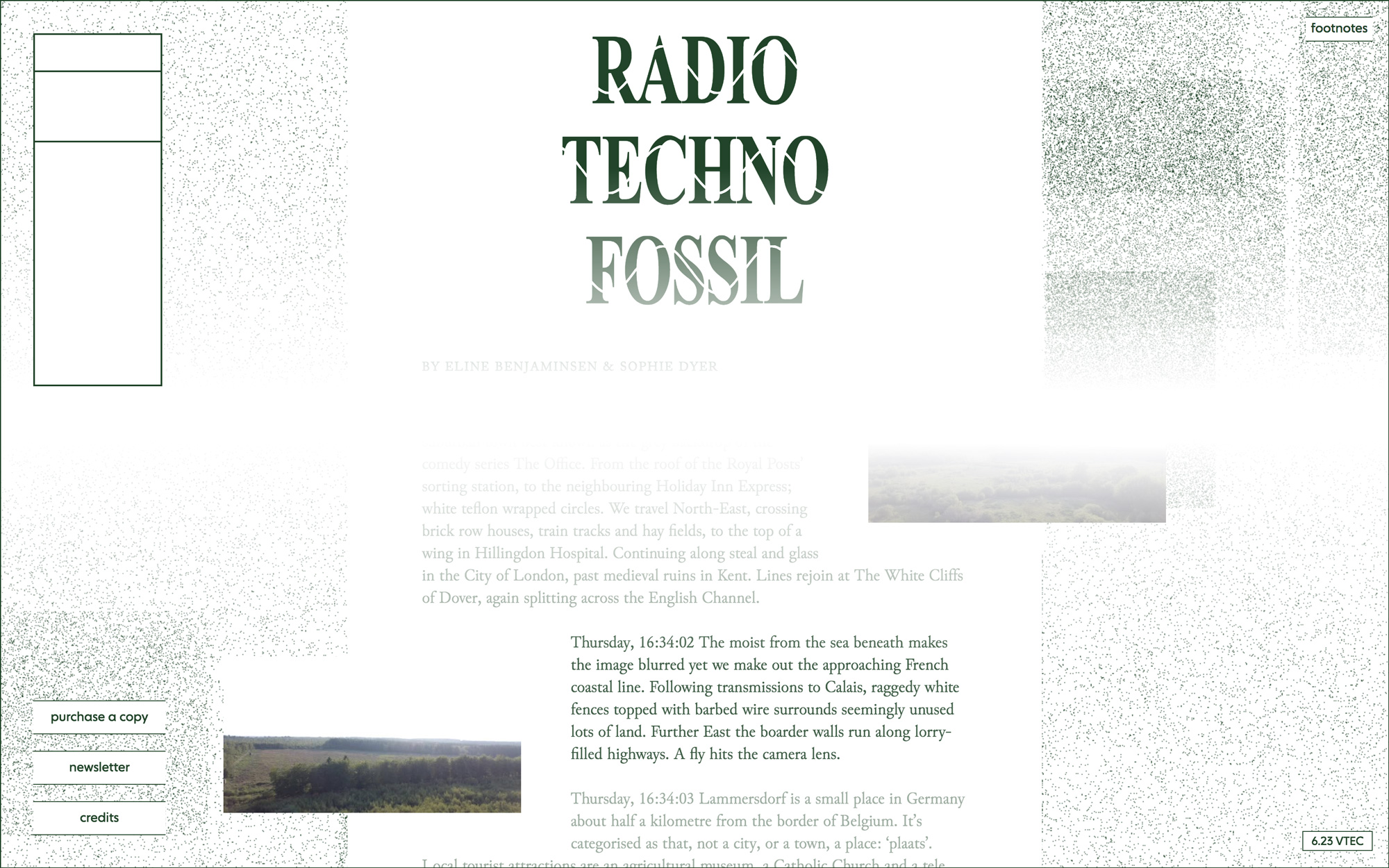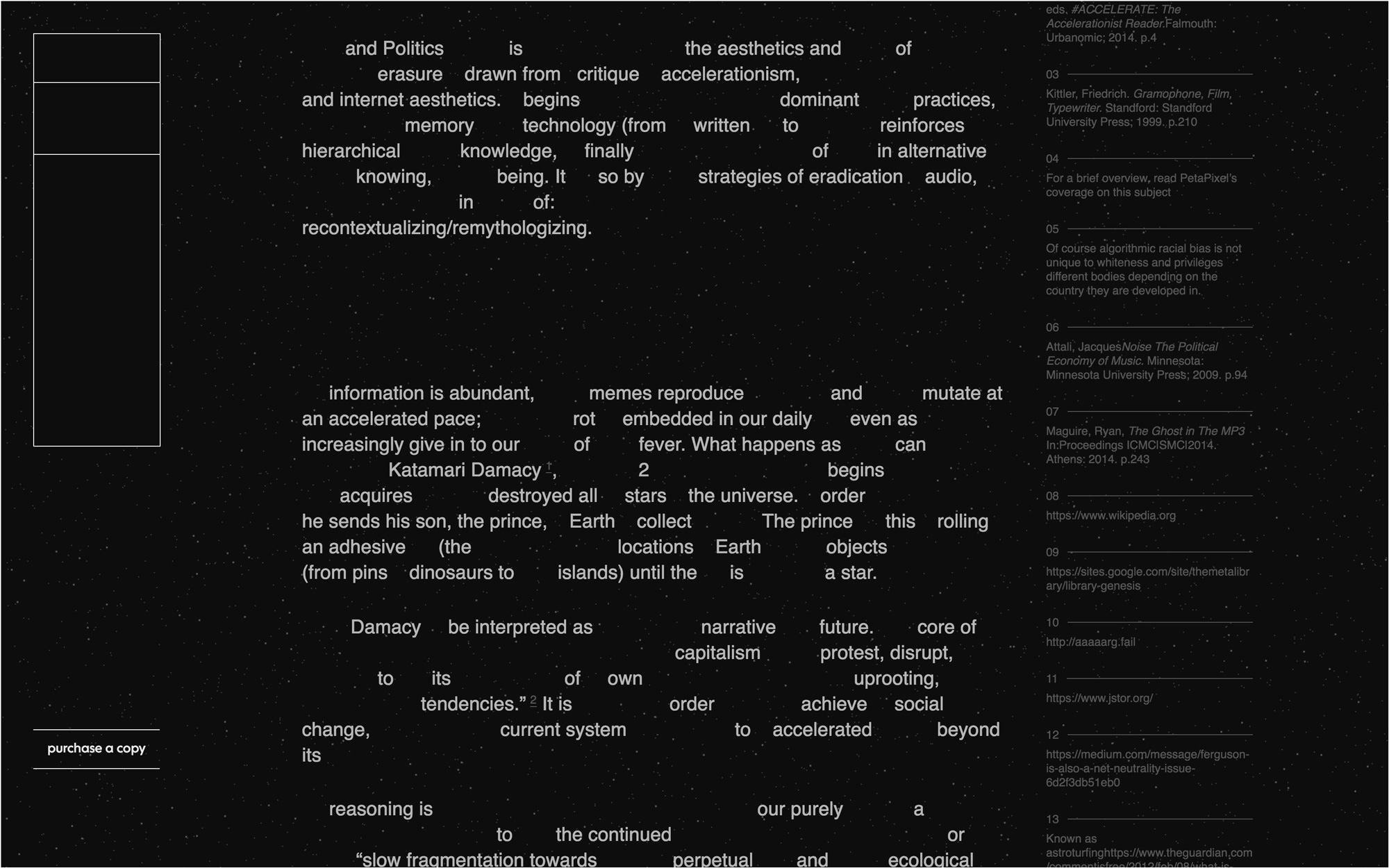Matthew Fuller, Eyal Weizman: Investigative Aesthetics: Conflicts and Commons in the Politics of Truth (2021)
Filed under book | Tags: · aesthetics, architecture, art, commons, corruption, environment, forensics, human rights, investigation, politics, technology, truth

“A new field of counterinvestigation in journalism, human rights, art and law
Today, artists are engaged in investigation. They probe corruption, human rights violations, environmental crimes and technological domination. At the same time, areas not usually thought of as artistic make powerful use of aesthetics. Journalists and legal professionals pore over opensource videos and satellite imagery to undertake visual investigations. This combination of diverse fields is what the authors call “investigative aesthetics”: the mobilisation of sensibilities associated with art, architecture and other such practices in order to speak truth to power.
Investigative Aesthetics draws on theories of knowledge, ecology and technology; evaluates the methods of citizen counter-forensics, micro-history and art; and examines radical practices such as those of WikiLeaks, Bellingcat, and Forensic Architecture. These new practices take place in the studio and the laboratory, the courtroom and the gallery, online and in the streets, as they strive towards the construction of a new common sense.
Matthew Fuller and Eyal Weizman have here provided an inspiring introduction to a new field that will change how we understand and confront power today.
To Nour Abuzaid for your brilliance, perseverance, and unshaken belief in the liberation of Palestine.”
Publisher Verso Books, London, August 2021
ISBN 9781788739085, 1788739086
259 pages
Review: Chris Hayes (Tribune, 2021).
EPUB (updated on 2022-11-21)
Comment (0)oneacre.online (2017–)
Filed under artist publishing | Tags: · aesthetics, artificial intelligence, information, internet, radio, technology


“oneacre.online is an experimental publishing and distribution project that utilises an online platform to seed unprintable text-based works by emerging artists. The project explores the possibilities of hyper-publishing in a series of commissioned publications. Thematically the first four place themselves in the online world of constant updates and refresh buttons that, as theorist Wendy Chun observes, “exist at the bleeding edge of obsolescence. We thus forever try to catch up, updating to remain the same”. The publications use the omnidirectional online terrain and actions that are native to it — such as refreshing, instantly available to edit, easily erasable, highlighting, copy-pasting and non linear navigation — to explore and critically evaluate visions and versions of power systems by tracing the politics of technological infrastructures. Hidden in places as traditional as archives, as often used as smart phone applications, omnipresent and inescapable as the financial market and as quiet and evasive as the transfer of information in narrative structures.
The series showcased in December 2017 Poetics and Politics of Erasure by Yun Ingrid Eel, a multidisciplinary research paper on the aesthetics and politics of erasure. In March 2018, Artificial Intelligence Never Has a Headache by Karina Zavidova, a long-form about the fear of AI spread by the media, and the market of productivity-enhancing tools it has fuelled. In July 2018 Radio, Techno, Fossil by Eline Benjaminsen & Sophie Dyer, the story of a radio-image as it traverses the bounds of the Earth’s surfaces, atmospheres and techno-geographies. And in September 2018, Meaning Seeking Animals by Lisa van Casand, a subjective collection of a wide range of perspectives on the transfer of information.”
Made by Stef Kors, Titus Knegtel, Victoria Douka-Doukopoulou
Published 2017-2018
HTML (limited preview; use the direct links above to access publications)
Comment (0)A Peer-Reviewed Journal About, 8(1): Machine Feeling (2019)
Filed under journal | Tags: · aesthetics, affect, feeling, machine, machine learning, sensation, subjectivation, technology

“Digital culture has become instrumental for capturing and managing what Raymond Williams would once have called “structures of feeling”. The journal issue A Peer-Reviewed Journal About Machine Feeling alludes to this, and points to a material analysis of aesthetics and culture, including its technical and social forms, and in the way that this concept was originally employed as an acknowledgment of the importance of the hard to capture dimensions of everyday life. What potential new sensibilities and structures of feeling may arise in such normalized registers of our habits? What new cultural and social forms and practices emerge in the coming together of machine learning and structures of feeling? In each their own way, the authors in this journal explore these questions.”
Edited by Christian Ulrik Andersen and Geoff Cox
Publisher Digital Aesthetics Research Centre, Aarhus University, Aarhus, 15 August 2019
Creative Commons BY-NC-SA License
ISSN 2245-7755
219 pages
With contributions by Mitra Azar, Daniel Chávez Heras, Michela De Carlo, Iain Emsley, Malthe Stavning Erslev, Tomas Hollanek, Rosemary Lee, Carleigh Morgan, Carman Ng, Irina Raskin, Tiara Roxanne, Rebecca Uliasz, Maria Dada, Tanja Wiehn, and Brett Zehner.
Comment (0)
